



As a result of Covid-19, the new collaborations and connections have become much more visible, and a new sense of solidarity is being expressed transnationally. The value of the common good has become clearer and has taken on a global character. More than ever, the nation state is no longer an exclusive point of reference. But that does not mean that we are not also seeing the emergence of strong national interests. These contrasting developments go hand in hand. At first glance they seem to be mutually exclusive, but the coexistence of paradoxes is a crucial feature of the new era. – Corinne M. Flick –
I consider it essential that we consciously combine our diverse strengths, perspectives, and methods to ensure healthy, future prospects for everyone. As a global community, we need stronger, multilateral solidarity, and considerably more partnerships that extend across sectors. After all, we are facing serious global risks and there is little that a single country or group can do to combat them on its own. – Stefan Oschmann –

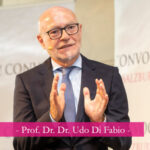
A new alliance of political officials and actors in civil society must overcome the new, paralyzing political thinking in camps, not with the aim of creating a new conformity, but rather the other way round— with the aim of launching a new culture of debate. – Udo Di Fabio –
From the societal point of view, productive alliances between politics and business should not primarily mean interdependencies and close cooperation between representatives of business and political decision-makers, but rather a shared awareness of the rules that must be adhered to so that the individual profit-seeking really serves the common good. – Clemens Fuest –

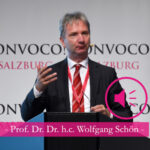
A “world government” that no one can escape from is an horrific thought while acknowledging the fantastic, technocratic opportunities it presents for overcoming global challenges. But the creation of a “global community” whose members feel bound together by a sense of solidarity and who bind national and international institutions to the aims of a global common good would constitute a great step forward. – Wolfgang Schön –
International Institutions find themselves under increasing public pressure. Against this backdrop I argue that international organizations are the tragic heroes of international politics, because if they work too closely with the member states, they are seen as puppets controlled by the most powerful states in the system. If, on the other hand, they emancipate themselves and act on their own initiative, they are accused of abuse of power. – Eugénia Da-Conceição-Heldt –


For a long time, a system’s legitimacy related exclusively to clearly defined societies, generally organized in the form of states. These closed circles of legitimacy have been circumvented by competitors. A growing number of supranational and global private organizations claim legitimacy alongside or against the state for sectoral activities and also when making decisions about how the economy is organized. However, it remains the task of states to recognize or reject claims to legitimacy. – Stefan Korioth –
The 2010s saw the world experience a unique global legitimacy crisis, as perceived norms in geopolitics, politics, economy, and society were challenged. This legitimacy crisis will likely deepen in the 2020s all over the world. – Maha Hosain Aziz –

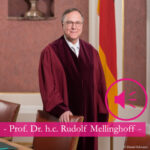
Civil society organizations play an important role in the political process. Through their participation they can make a legitimate contribution to political decisions, in particular at international level. However, the final binding decision on sovereign measures must still be left to democratically legitimized institutions. – Rudolf Mellinghoff –
The first, young alliance of European states is already in danger of collapse once more. In order to stop this, we must create a new narrative since Europe has lost its persuasive power and attraction as a bringer and guarantor of peace. We might reap this new narrative from the COVID-19 crisis, namely a Europe of common rights and responsibilities. – Christoph G. Paulus –


China has turned into a systemic rival, competing with the West in its promise of prosperity. In light of China’s increasing political and economic importance, the Western liberal democracies throughout the world should form a strategic alliance, the D10 (ten democracies), in order to be able to survive this systemic competition. – Sven Simon –
Digitalization is having a huge impact on the world of work and on the business models of major companies—digital platforms are the business model of the 21st century. Europe can only counter the supremacy of Chinese and American companies by creating an innovation-friendly infrastructure and by adopting a common approach to make sure it can compete. – Gisbert Rühl –

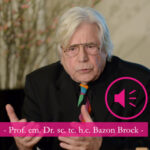
Re-thinking the oldest notion—capitalism is on the wane. – Bazon Brock –
Beyond health systems thinking we have to also start thinking about factors like planetary health, ecological systems, and environmental determinants of human health. We need joined-up thinking that looks at global health as a system, with corresponding functions and delivery mechanisms.

The more solidarity the global community can show in the distribution of vaccines, the sooner adequate immunity can be achieved across individual countries. With both immunity and preparedness, the same principle applies: the weakest link in the chain determines the success of all. – Lothar H. Wieler –
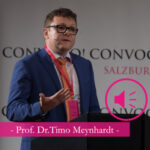
It is unclear whether the pandemic will lead to new constellations of the common good. But one thing is certain: the heyday of differentiation theorists is over if the latter do not take account of their assumptions about the common good. A reversal of the point of departure is required. – Timo Meynhardt –

Identifying a turning point involves pinning down the pluperfect tense. However, the Covid-19 pandemic does not yet have a definable ancien régime. Nevertheless, the multitude of paradoxes increases the likelihood of a world in upheaval, between transition and transformation, not created through a revolution in a single moment, but incrementally through the gradual unfolding and ever longer duration of the crisis. Today we can no longer be as certain as we were a year ago that something completely new isn’t emerging from beneath the surface of the supposedly familiar, the apparently repetitive, the prefigured present, breaking through the hermeneutical framework of the narrative of continuity. – Jörn Leonhard –
Sign up now for exclusive news. We will use your personal information as described in our privacy policy.
© 2024. All Rights Reserved